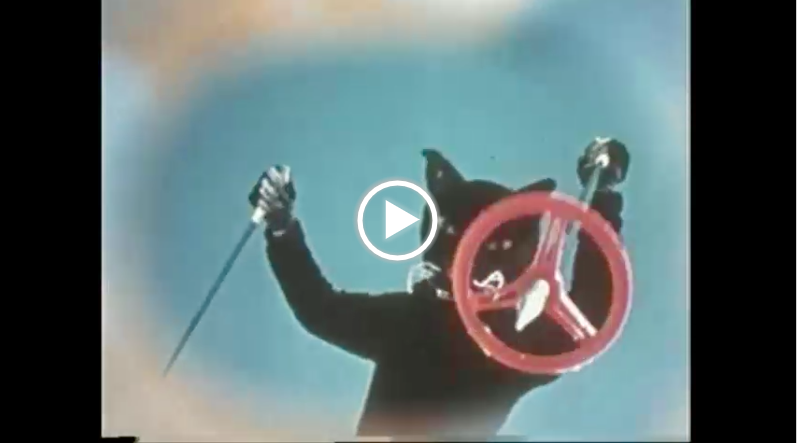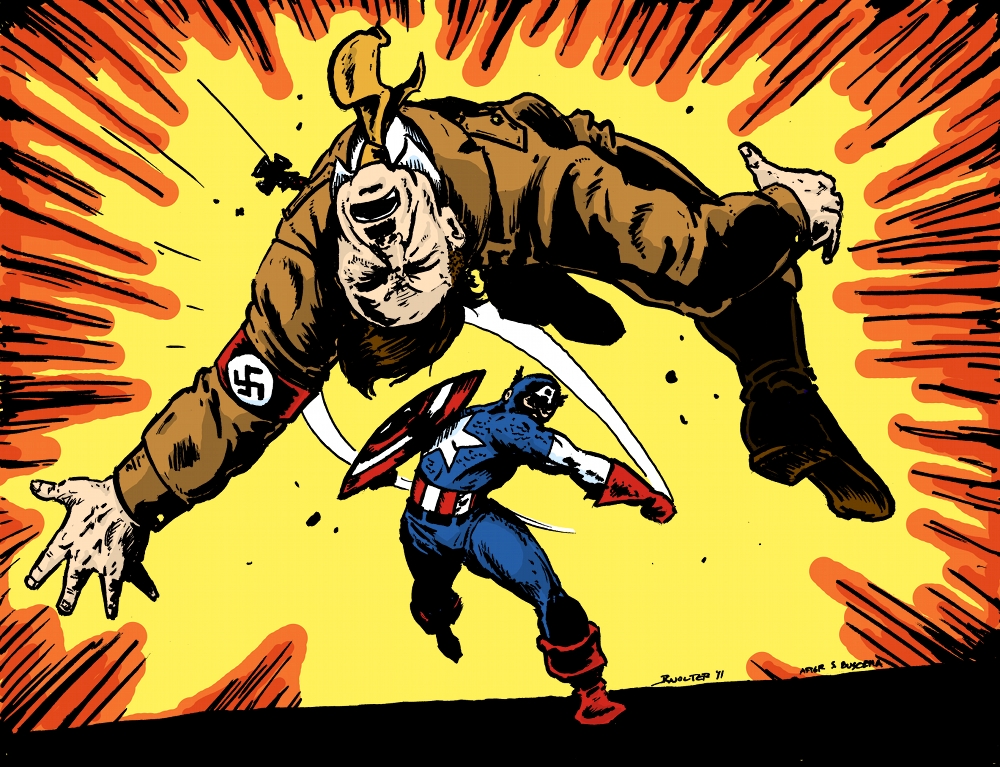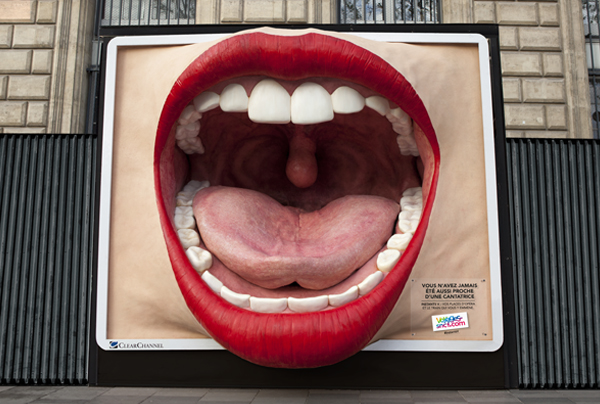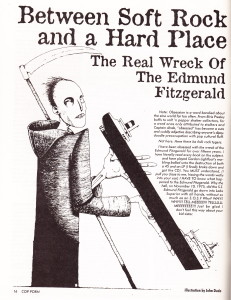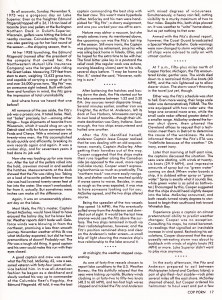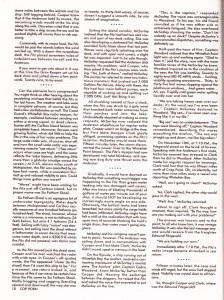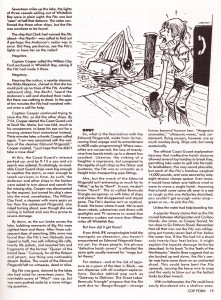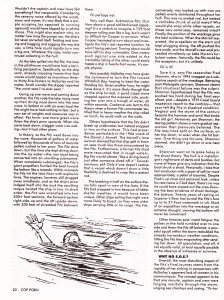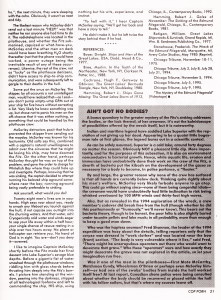 Comic book creator Dennis Eichhorn died. I wasn’t close friends with him, but I would have liked to have been. We were friendly colleagues though when I interacted with him in the late 90s—mostly by mail and once in person. I’m not sure when I first encountered his work. Like Harvey Pekar, Eichhorn was a writer not an artist; unlike other autobiographical comic creators, however, his life was actually interesting. In the pages of his comic Real Stuff, he shared a bevy of stories about his life in the Northwest US (and occasionally beyond) from the 50s through the present day.
Comic book creator Dennis Eichhorn died. I wasn’t close friends with him, but I would have liked to have been. We were friendly colleagues though when I interacted with him in the late 90s—mostly by mail and once in person. I’m not sure when I first encountered his work. Like Harvey Pekar, Eichhorn was a writer not an artist; unlike other autobiographical comic creators, however, his life was actually interesting. In the pages of his comic Real Stuff, he shared a bevy of stories about his life in the Northwest US (and occasionally beyond) from the 50s through the present day.
Eichhorn was a picaresque figure. Fighting, drinking, getting high, screwing, working, engaging in low-end criminality, getting busted and imprisoned for a time, bumping into historical and cultural figures as well as lesser-known but no less compelling personalities. He shared it all through comics made in collaboration with cartoonists like Peter Bagge, Ed Brubaker, Julie Doucet, Michael Dougan, Chester Brown, Pat Moriarty, J.R. Williams, and others. I’ll let this link speak for his work (FYI sometimes NSFW).
Good grief. I forgot how often he wrote about marijuana.
When I knew him, Eichhorn served as editorial director for Loompanics Unlimited. Being a young weirdo, I was a faithful customer and eventual contributor. At some point I submitted a couple of articles for their catalog and supplements. One piece was about alleged culture-bound disorders like amok and koro, another about literal mythological sex gods. Considering my writing style and subject matter, there were few places where I could get my work published in the form I preferred. Loompanics was one of them.
In my experience, he was a decent editor. He crafted, he didn’t hack, sending his edits for my approval/alterations along with notes for tightening things up and the like. I would send him copies of my zines and he’d always drop me a nice note. The man was a great communicator.
Some time after that, I think, the American Bookseller’s Association held its convention at McCormick Center. My friend Steven of Quimby’s asked me if I wanted to tag along. I did. We made the rounds of the underground and weirdo publishers: Fantagraphics, Feral House, Last Gasp, and the rest. I remember bits and pieces—I hope I’m not conflating it with other conventions. Quite a time, in which I ran into my own brand of real stuff: Running into the ex-husband of a former zine/mail friend—we had a bad falling out—who recognized me from my visit to his San Francisco home five years before. A high-end publisher of coffee-table erotica who looked visibly irritated when Steven introduced me as a writer (Jesus, I wasn’t planning to pitch you, so fuck you buddy). Mr. T, covered in gold chains, posing with people while shouting at a maniacal clip: “YEAH! YEAH! WE’RE HAVING A GOOD TIME! LOTTA FUN! LOTTA FUN!” Quite a time. We ended up at the Loompanics booth where we met owner Mike Hoy and Dennis. Eichhorn was a big guy, in body and personality, and gregarious as hell. I can confirm he had a firm and memorable handshake, as I read somewhere today,
Hoy and Eichhorn were preparing to leave. They let Steven take all their display books back to Quimby’s to sell on consignment while I got a couple of cheap bookshelves out of the deal (the benefit of owning a car when most of your friends don’t). After that we gave Dennis a lift. As we passed through the Loop I pointed out particular buildings until we turned onto State Street.
“And here we have State Street…THAT GREAT STREET!” I said.
“Hey! Hey!” Dennis said pointing out the window, “I saw a man dance with his wife!”
We all went out for drinks afterward. I can’t remember what we discussed. I just remember it was a fun and fascinating talk. What struck me though was that even though he was the Real Stuff guy with the wild stories, freaky background, and incredible past, he was still grounded, friendly, and approachable. Just what one looks for in a folk figure.
For the next year or so I sent Dennis a few more zines and we exchanged the odd postcard, but we didn’t stay in touch. I edited an issue of Lumpen and asked him to contribute a piece. Within a week he had a write-up about his prison experiences, in particular with the captain of the prison guards who he described, quite accurately, as the living embodiment of The Manâ„¢. It was a consummate Dennis Eichhorn piece: funny, scary, observant, and interesting.
The world is the poorer for not having time to hear all his stories.
RIP, Dennis Eichhorn.
P.S. Apparently he just released a collection called Extra Good Stuff. Please check it out.
